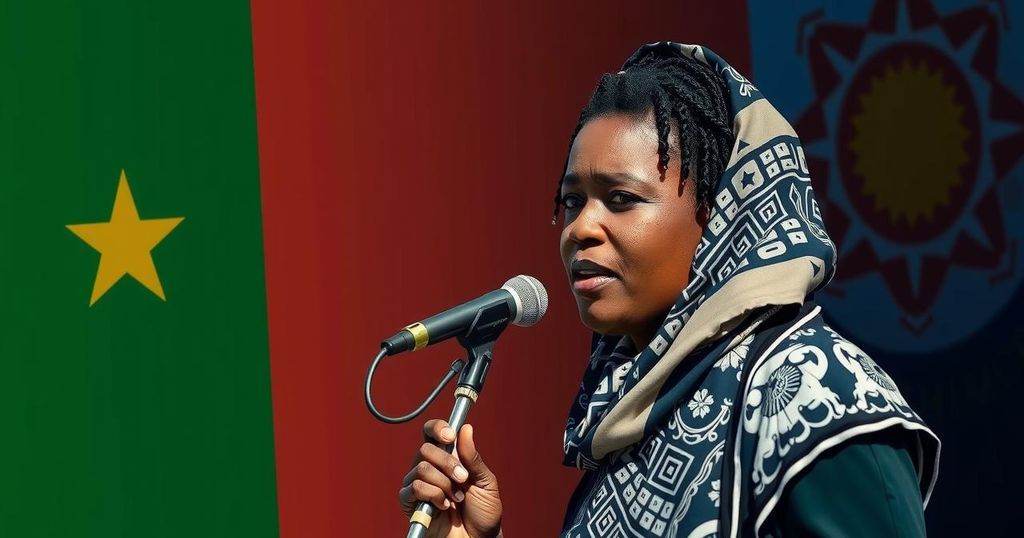World news
2024 ELECTIONS, AFRICA, AFRICAN NATIONAL CONGRESS, BRITAIN, DEMOCRACY, ELECTIONS, ELECTORAL PROCESS, GOVERNANCE, GOVERNMENT, INDEPENDENT PATRIOTS FOR CHANGE, IPC, ITULA, NANDI - NDAITWAH, NET, NEW INDEPENDENT PATRIOTS FOR CHANGE, NEWCASTLE, SOUTH AFRICA, SOUTHERN AFRICA, SWAPO
David O'Sullivan
0 Comments
Namibia Elects First Female President in Controversial Elections
Namibia has elected its first female president, Netumbo Nandi-Ndaitwah, winning 57% of the votes in elections that extended the Swapo party’s 34-year rule. Nandi-Ndaitwah’s victory was marred by opposition claims of voting irregularities, including ballot shortages. The Swapo party’s parliamentary support also declined, signaling a potential shift in political dynamics in Namibia.
Namibia has made history by electing its first female president, Netumbo Nandi-Ndaitwah, who has been declared the winner of the recent presidential election, reinforcing the longstanding dominance of the ruling Swapo party since the country’s independence from apartheid South Africa in 1990. Nandi-Ndaitwah, who previously served as vice-president, garnered 57% of the vote, contrary to expectations that the election might necessitate a runoff. Following the announcement of the final results, she expressed that “the Namibian nation has voted for peace and stability.”
At 72 years of age, Nandi-Ndaitwah has a historic background, having been part of Namibia’s underground independence movement during the 1970s. She rose to her current position in February after the passing of President Hage Geingob while in office. Despite her victory, opposition parties have voiced their dissent, claiming the election process experienced significant technical difficulties, including ballot paper shortages, which led to an unapproved extension of voting until Saturday.
As a result, opposition leader Panduleni Itula, who received 25.5% of the vote, plans to legally contest the election results. Moreover, the Swapo party experienced a decrease in parliamentary support, securing only 53% of the vote, compared to 65% in the previous election cycle. This outcome signifies a prevailing trend in southern African politics, where established liberation movements have been facing challenges from younger voters dissatisfied with their governance.
The election of Netumbo Nandi-Ndaitwah marks a significant milestone in Namibia’s political history, as she becomes the first female president in the country’s history. Swapo has maintained control since Namibia’s independence in 1990, making it one of the longest-ruling parties in southern Africa. The challenges faced during the election, including logistical issues and allegations of illegality, highlight ongoing tensions between the ruling party and opposition factions within the nation. As younger voters in the region increasingly demand accountability from their leaders, Nandi-Ndaitwah’s leadership will be closely scrutinized in the coming years.
In conclusion, the election of Netumbo Nandi-Ndaitwah as Namibia’s first female president reflects both a historic achievement for gender representation in leadership and the continued dominance of the Swapo party. However, the opposition’s claim of election irregularities and the challenges faced by established parties indicate a potentially shifting political landscape in Namibia that could influence future governance and electoral integrity.
Original Source: www.theguardian.com




Post Comment